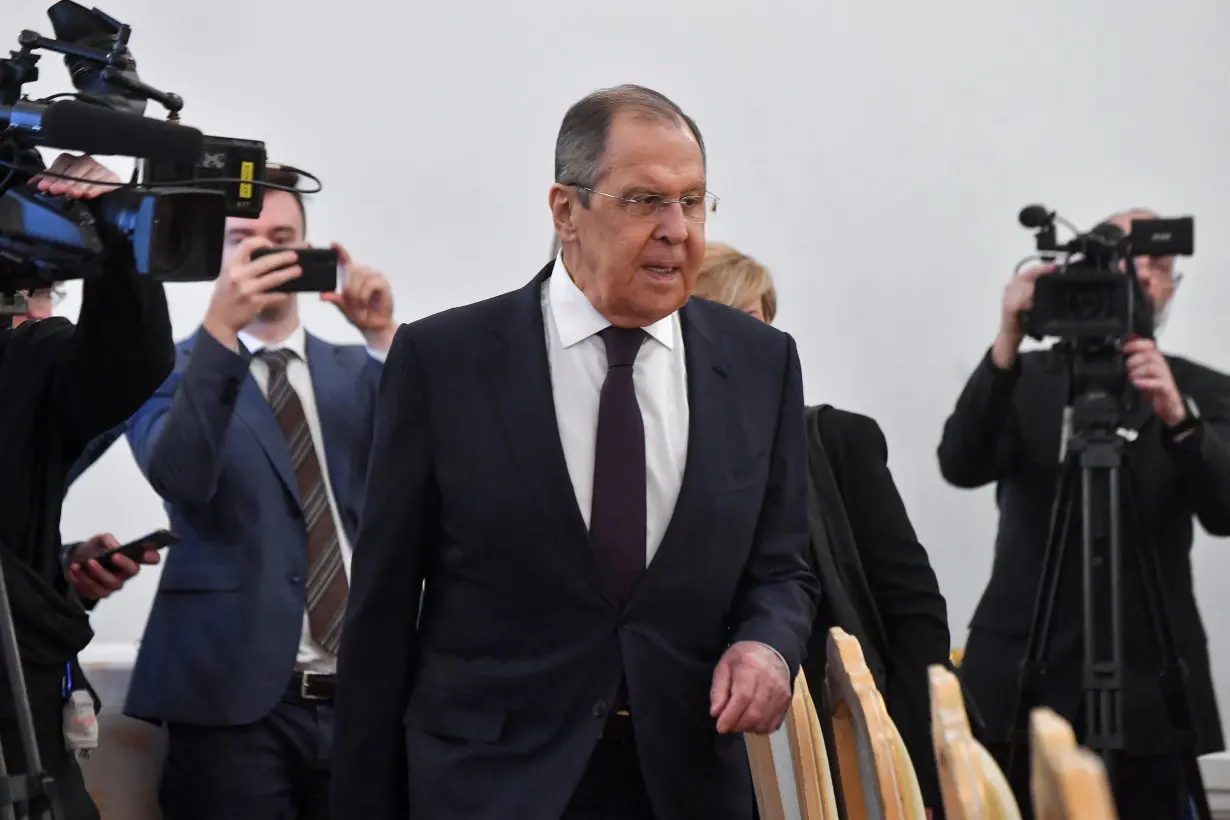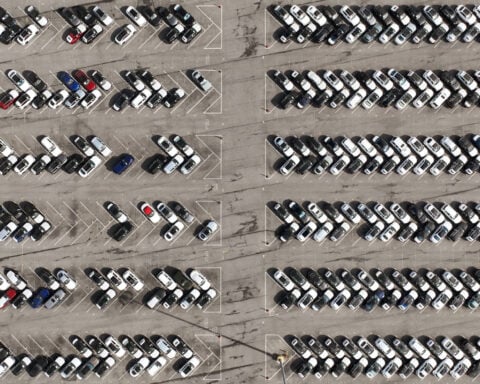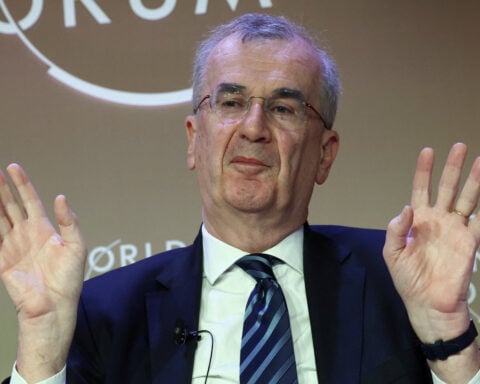By Vladimir Soldatkin and Guy Faulconbridge
MOSCOW (Reuters) - Russia said on Thursday that the United States was unlikely to agree to a Ukrainian proposal to lower the price cap on Russian oil to $30 a barrel because it would roil global energy markets and damage the U.S. economy.
After Russia sent troops into Ukraine in 2022, the West sought to sink the Russian economy by imposing a myriad of sanctions and in 2022 slapped a $60 a barrel price cap on Russian oil, which is currently traded at around $68 per barrel.
Before the cap was set, Ukrainian President Volodymyr Zelenskiy in November 2022 urged a limit between $30 and $40 per barrel.
The $60 cap has so far been maintained despite fluctuations in the oil price and calls by some countries for a lower cap to further restrict Moscow's revenues.
The United States has imposed sanctions on dozens of tankers suspected of carrying oil above the price cap agreed by G7, the EU and Australia.
President Vladimir Putin says Russia's wartime economy -- which grew 3.6% last year -- has thrived despite the sanctions, and that Russia, the world's second largest oil exporter, has plenty of buyers for its oil.
"The other day I read that Ukraine was trying to convince the United States to lower the cap price on Russian oil to $30 a barrel," Russian Foreign Minister Sergei Lavrov said in an interview published on the Foreign Ministry website.
"This goes beyond all bounds."
"It is significant that the United States is unlikely to go along with Ukraine," Lavrov said. He argued that such a lowering of the cap would have a serious impact on both the global oil market and on the U.S. economy.
Russia has more than 5% of the world's proven oil reserves and about of quarter of the world's proven natural gas reserves while OPEC, led by Saudi Arabia, controls about 80% of the world's oil reserves, according to OPEC figures.
SAUDI ARABIA
Lavrov, Putin's foreign minister since 2004, said that the United States put immense pressure on the House of Saud in the 1980s to collapse the price of oil to weaken the Soviet Union.
Asked about relations with Saudi Arabia, whose crown prince, Mohammed bin Salman, congratulated Putin on his election on and who has cooperated closely with Moscow as part of the OPEC+ group, Lavrov said Saudi had pursued its own policy.
"I would not say that they have set a course away from the United States," Lavrov said.
"They simply decided to pursue their national policy so that no one (from the left or the right, or from above or from below) should interfere with them, including, most of all, the United States."
While Russia says it will never give in to the United States, which Putin casts as a declining empire fighting a proxy war with Russia in Ukraine, Russia's energy sector has faced serious challenges from the fallout of the war in Ukraine.
Russia's Gazprom has lost most of the European market - which Moscow spent about half a century slowly building after the Soviets forged gas pipelines westwards from Siberia in the early 1970s.
Putin's bid to reorient Russia's vast energy exports eastwards faces massive hurdles - both the vast distances to Asian markets and the difficult negotiations with China about the price.
"There will be no shortage of consumers. Take Africa - we have doubled the export of petroleum products there over the past year and a half," Lavrov said.
He said China and India would be able to absorb oil supply from the OPEC+ group of leading oil producers.
(Reporting by Vladimir Soldatkin; Editing by Guy Faulconbridge and Alison Williams)

 Trump has begun another trade war. Here's a timeline of how we got here
Trump has begun another trade war. Here's a timeline of how we got here
 Canada's leader laments lost friendship with US in town that sheltered stranded Americans after 9/11
Canada's leader laments lost friendship with US in town that sheltered stranded Americans after 9/11
 Chinese EV giant BYD's fourth-quarter profit leaps 73%
Chinese EV giant BYD's fourth-quarter profit leaps 73%
 You're an American in another land? Prepare to talk about the why and how of Trump 2.0
You're an American in another land? Prepare to talk about the why and how of Trump 2.0
 Chalk talk: Star power, top teams and No. 5 seeds headline the women's March Madness Sweet 16
Chalk talk: Star power, top teams and No. 5 seeds headline the women's March Madness Sweet 16
 Purdue returns to Sweet 16 with 76-62 win over McNeese in March Madness
Purdue returns to Sweet 16 with 76-62 win over McNeese in March Madness








